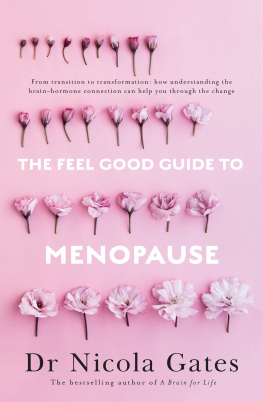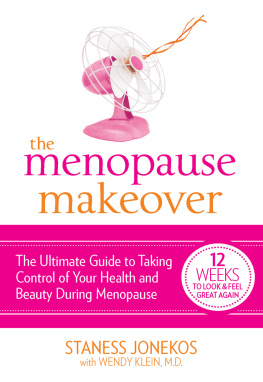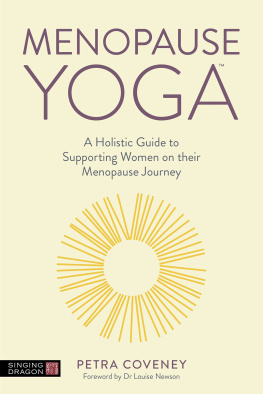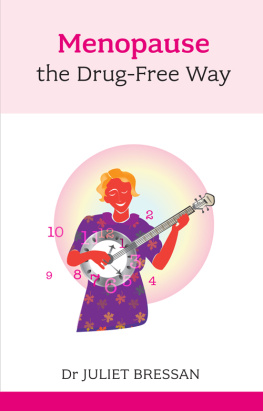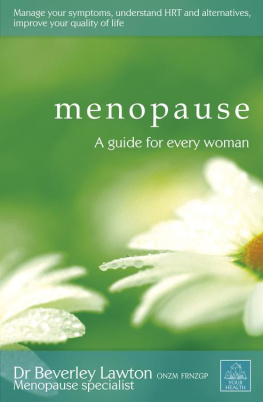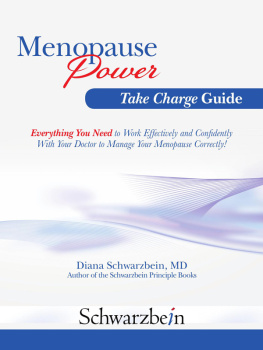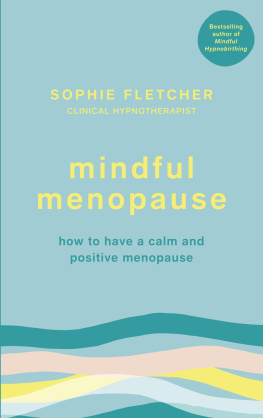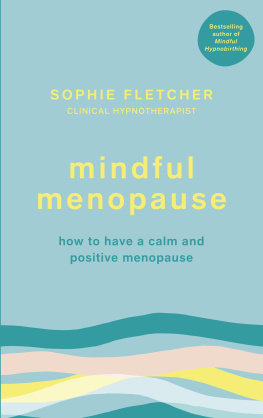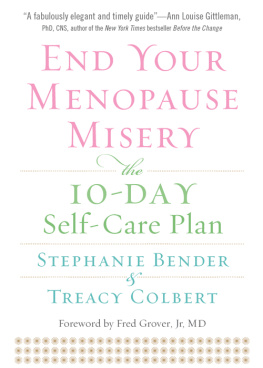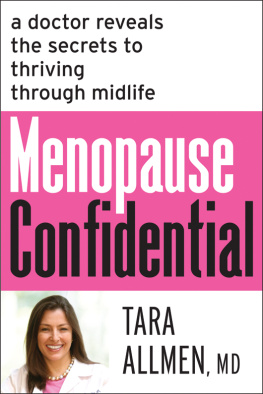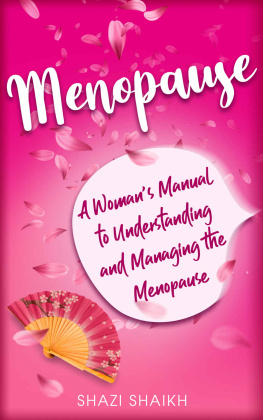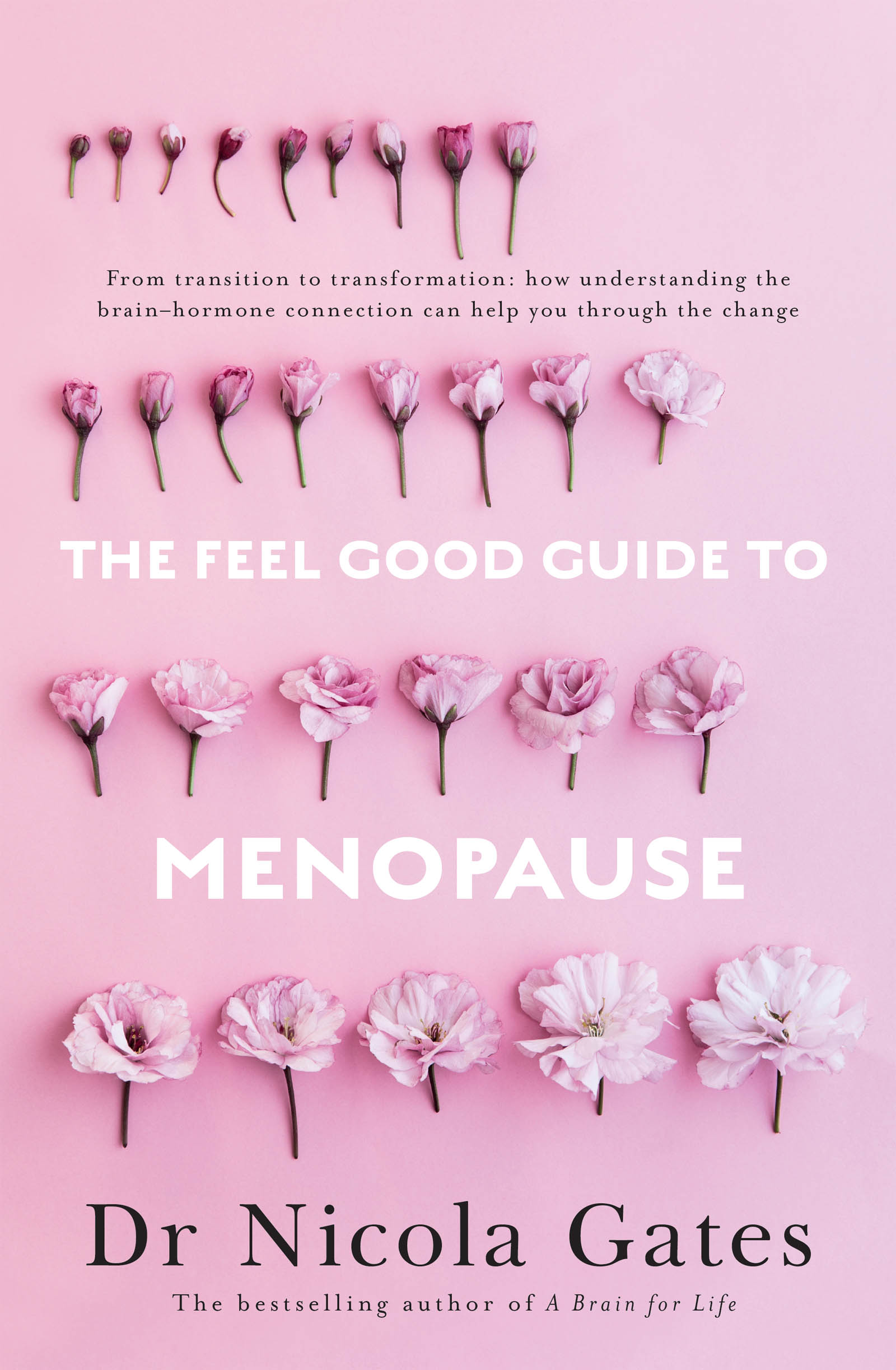Contents
Guide
Contents
NICOLA GATES PhD is a clinical neuropsychologist with more than twenty-five years experience working with adults to improve their brain health, cognitive function and mental wellbeing. She is the bestselling author of A Brain for Life, based on her academic research investigating the prevention of dementia. In her clinical practice, Brain and Mind Psychology, Nicola combines neuropsychology and mindfulness with positive psychology to improve individuals lives. To enrich her own life, Nicola has a fifty-acre property where she keeps bees and is establishing a large native garden.
www.brainandmindpsychology.com
All personal recounts are written by the women involved and have been lightly edited only.
This book is within the self-help genre and is not designed to provide definitive or individual advice, and is not a substitute for appropriate care from a registered medical or health professional.

| The ABC Wave device is a trademark of the Australian Broadcasting Corporation and is used under licence by HarperCollinsPublishers Australia. |
First published in Australia in 2019
by HarperCollinsPublishers Australia Pty Limited
ABN 36 009 913 517
harpercollins.com.au
Copyright Dr Nicola Gates 2019
The right of Nicola Gates to be identified as the author of this work has been asserted by her in accordance with the Copyright Amendment (Moral Rights) Act 2000.
This work is copyright. Apart from any use as permitted under the Copyright Act 1968, no part may be reproduced, copied, scanned, stored in a retrieval system, recorded, or transmitted, in any form or by any means, without the prior written permission of the publisher.
HarperCollinsPublishers
Level 13, 201 Elizabeth Street, Sydney, NSW 2000, Australia
Unit D1, 63 Apollo Drive, Rosedale 0632, Auckland, New Zealand
A 75, Sector 57, Noida, Uttar Pradesh 201 301, India
1 London Bridge Street, London SE1 9GF, United Kingdom
Bay Adelaide Centre, East Tower, 22 Adelaide Street West, 41st Floor, Toronto, Ontario, M5H 4E3, Canada
195 Broadway, New York, NY 10007, USA
ISBN 978 0 7333 3874 8 (paperback)
ISBN 978 1 4607 0903 0 (ebook)
A catalogue record for this book is available from the National Library of Australia
Cover design by Hazel Lam, HarperCollins Design Studio
Cover image by Ruth Black / Stocksy.com / 995121
I dedicate this book to my darling, supportive and
accommodating husband, Simon. I love and appreciate
your constancy and commitment. I thrive because you
support me to be who I am and adore me always.
Menopause is, like puberty, a time of massive hormonal change, but in the opposite direction as our bodies shift from being fertile to infertile. This transition is a significant time of change in womens lives, and like all change it can be challenging. Whether menopause is overall a negative and overwhelming time or one of net growth and transformation depends not only on the severity of our symptoms, but also our knowledge, attitude and self-compassion, the support we can access and our capacity to blossom into the third stage of our lives.
We know menopause will happen and we have some idea what to expect, but the dawning realisation that subtle signs indicate that we are in the menopause transition can still take us by surprise. Our well-known bodies start to function differently and can feel foreign. The first noticeable symptoms that things are changing are likely to be different and irregular periods, perhaps hot flushes, or maybe disturbed sleep. We are familiar with these visible physical symptoms and can anticipate them. We keep vigilant, check in with ourselves, and perhaps start investigating treatment options. But what happens when we experience unexpected changes, less familiar from popular culture, or which are invisible? We are thrown off kilter, and dont know what is happening or how to manage.
Although women make up half the worlds population there is limited awareness and understanding about how menopause affects our thinking and emotions. While we have the knowledge to put women in outer space we still do not have enough knowledge about how our hormones impact our inner space our brains and minds.
Our brains and reproductive organs have been intimately connected since our conception and have been talking to each other ever since through a complex communication and feedback system. Our female sex hormones do a lot more than give us periods each month. They have major roles in our general health maintenance, thinking and behaviour. Too often women and their treating health professionals do not recognise the susceptibility of the brain and mind to hormone fluctuations and these symptoms are ignored or misdiagnosed. But that need not be the case.
As a clinical neuropsychologist I am particularly interested in the brainmindbehaviour relationship and am fascinated by how the fluctuations in hormone levels change the way our brain operates and how we think and feel. The fluctuations in, and ultimate loss of, hormones impact brain structures, brain chemistry, cognitive functions such as memory, as well as mood, emotion, stress levels and behaviour.
In my clinical practice I notice more women in their mid-forties to early fifties coming in with concerns for their memory and brain fog, and others with anxiety, stress and depression. Some women who have mothers with dementia are specifically fearful they too might have early dementia. They report that their brains are like sieves as they cannot hold on to information and forget conversations, tasks, words and names, or have other cognitive issues such as indecision, poor attention and slowed thinking. There is another group whose primary concerns are feelings of emotional disconnection, who have a sense of being easily overwhelmed and stressed or feel increased anxiety and depression. They are unsettled, concerned and bewildered about what is happening within them.
The lack of awareness of these less obvious brain and mind menopausal changes can make the transition experience unnecessarily difficult, reduce the likelihood of compassionate support, and limit intervention.
As I began to write this book my own life unfolded unpredictably, as life is wont to do, and in such a way that I personally needed to update my knowledge of menopause. I was sitting opposite my doctor discussing what I had thought were normal peri-menopause symptoms when she said, time to put it in a bucket. She was referring to my uterus. My unpredictable yet heavy periods were not normal at all. I felt some sadness at losing my wonderful womb, which symbolised motherhood for me it had after all been the temporary home for my two children but also considerable relief. In among that emotional mix I had to get my head around the possibility of waking post-operatively without my ovaries and in menopause. Whether I would have a natural menopause, or an abrupt medical menopause, would be determined during surgery.
My ovaries were beautiful, the surgeon said, so they had remained. I thought I would continue through natural menopause. Except, in another left-hand turn I was subsequently diagnosed with grade-3 invasive breast cancer. It was oestrogen and progesterone driven. My ovaries may have been beautiful, but they were too prolific for my age. After a double mastectomy (which I pragmatically embraced to be cancer-free), my ovaries needed to be immediately decommissioned prior to commencing anticancer medication. I went into a very sudden medically induced menopause.

